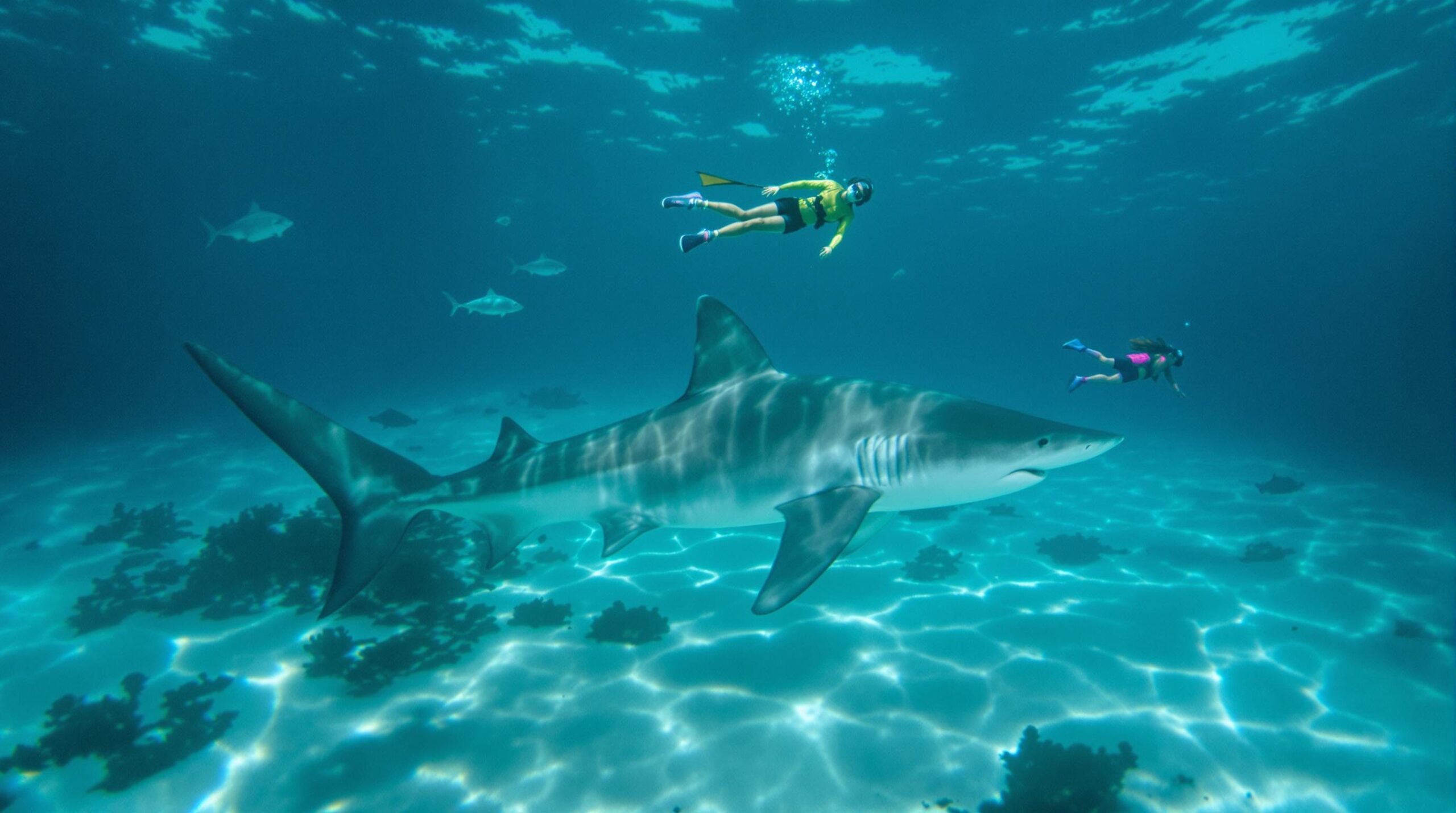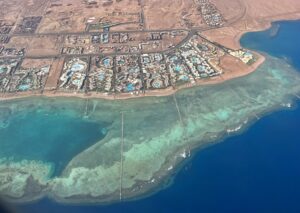The Truth About Sharks in Hurghada: What’s Really Happening in the Red Sea?
By Dr. Karim El-Sayed, Marine Biologist & Red Sea Conservationist
If you’re reading this, you’re probably planning a trip to Hurghada or the Red Sea coast, or maybe you’re already here, soaking up the sun and wondering about the recent headlines. As someone who has spent over two decades studying sharks and marine life in these waters, I want to offer you the real story—beyond the sensational news, the rumors, and the fear.
Sharks in the Red Sea: A Natural Wonder
First, let’s set the scene. The Red Sea is one of the world’s most biodiverse marine environments. Its coral reefs are home to over 44 species of sharks, from the majestic whale shark to the elusive hammerhead. For divers and snorkelers, encountering a shark here is often the highlight of a lifetime.
But, as with any wild environment, there are risks. And recently, those risks have made global headlines.
Recent Shark Attacks: What Really Happened?
In December 2024, tragedy struck near Marsa Alam, just south of Hurghada, when a shark attack claimed the life of a 48-year-old Italian tourist and seriously injured another diver. The attack occurred in deep water, outside the designated swimming areas, and was reportedly carried out by a tiger shark—a species known for its curiosity and occasional aggression toward humans [CBS News].
This was not an isolated incident. In June 2023, a Russian man was killed by a shark off Dream Beach in Hurghada, an event that was widely shared on social media. In 2022, two women—one Austrian, one Romanian—lost their lives in separate attacks near Sahl Hasheesh, just south of Hurghada [Shark Sider].
These events are heartbreaking, and as someone who has worked with both local authorities and international researchers, I can tell you: every incident is thoroughly investigated. The goal is always to understand what happened, why, and how to prevent future tragedies.
Why Are Shark Attacks Happening?
This is the question I get asked most. The answer is complex, but let me break it down:
1. Environmental Changes and Overfishing
The Red Sea’s ecosystem is under pressure. Overfishing has reduced the natural prey available to sharks, sometimes forcing them closer to shore in search of food. When fishing boats discard unwanted catch or waste, it can attract sharks to areas where people swim and dive .
2. Unregulated Tourism and Human Activity
The Red Sea is a magnet for tourists, and not all activities are well-regulated. Feeding fish (or sharks), spearfishing, and swimming outside designated areas can disrupt natural shark behavior. In some cases, boats dump organic waste, which can lure sharks into shallow waters.
3. Mistaken Identity
Most shark attacks are cases of mistaken identity. Sharks have poor eyesight and rely on movement and vibration to locate prey. A swimmer or snorkeler splashing at the surface can resemble a wounded fish or seal—especially in murky water.
4. Seasonal and Behavioral Factors
Contrary to popular belief, there’s no “shark season” in the Red Sea. Attacks are rare and unpredictable, but certain species—like the oceanic whitetip and tiger shark—are more likely to approach humans, especially if they’ve been conditioned to associate people with food.
The Numbers: Perspective Matters
Let’s put things in perspective. Millions of people swim, snorkel, and dive in the Red Sea every year. Fatal shark attacks are extremely rare. According to the Shark Research Institute, there have been just four confirmed fatalities in the last decade along the Egyptian Red Sea coast [BBC].
Compare that to the risks of driving in Egypt, or even slipping by the pool, and you’ll see that sharks are not the monsters they’re made out to be.
What’s Being Done to Prevent Attacks?
Egyptian authorities take every incident seriously. After the December 2024 attack, the affected area was immediately closed to swimmers for two days, and an urgent committee was formed to investigate the causes. Similar measures were taken after previous incidents.
Local dive operators and hotels are now more vigilant than ever. Many have implemented stricter rules about where and when you can swim, and some have installed lookout towers and warning systems.
As a scientist, I also work with local NGOs to educate both tourists and residents about safe behavior in the water. Knowledge is the best defense.
How to Stay Safe: My Personal Advice
Here’s what I tell my own family and friends:
- Always swim in designated areas, where lifeguards and spotters are present.
- Never swim at dawn, dusk, or at night—these are peak feeding times for many shark species.
- Don’t wear shiny jewelry or bright clothing, which can attract curious sharks.
- Avoid swimming if you’re bleeding, as sharks can detect even tiny amounts of blood.
- Never feed fish or sharks, and don’t swim near fishing boats or where fish are being cleaned.
- If you see a shark, stay calm. Most sharks are not interested in humans and will swim away if not provoked.
The Bigger Picture: Sharks Need Our Protection
It’s easy to fear sharks after reading about attacks, but the truth is, sharks are far more threatened by us than we are by them. Overfishing, habitat destruction, and climate change are pushing many species to the brink of extinction.
Sharks play a vital role in keeping the Red Sea’s ecosystem healthy. Without them, the balance of marine life would collapse, affecting everything from coral reefs to the fish we eat.
What I’ve Learned After 20 Years in the Red Sea
I’ve spent thousands of hours underwater with sharks in Hurghada, Marsa Alam, and beyond. I’ve seen them glide gracefully through coral gardens, hunt in packs, and even interact with divers. I’ve also seen the fear and misunderstanding that follows every attack.
Here’s my honest take: sharks are not villains. They are wild animals, deserving of respect and caution—but also of awe and protection. The recent attacks are tragic, but they are not a reason to avoid the Red Sea or to demonize its most iconic residents.
Final Thoughts
If you’re coming to Hurghada, don’t let fear keep you from experiencing the magic of the Red Sea. Respect the ocean, follow the rules, and remember: you’re far more likely to see a dolphin or a turtle than to have a negative encounter with a shark.
Let’s work together to protect these incredible animals—and to keep the Red Sea safe and beautiful for generations to come.
References:
- CBS News: Shark kills tourist and injures another in attack off Egypt’s Red Sea coast
- Shark Sider: Shark Attacks in Egypt (Updated April 2025)
- BBC: Tourist killed in Red Sea shark attack near Marsa Alam area
- Times of Israel: Tourist killed, another injured in Egypt Red Sea shark attack



